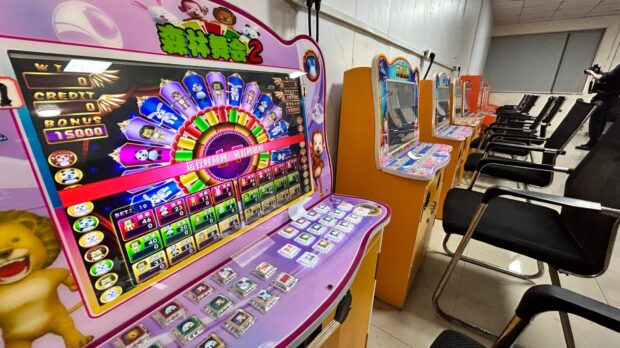House panel OKs 2 measures on Pogo ban
A panel of the House of Representatives on Monday approved two measures seeking to ban Philippine offshore gaming operators (Pogos), citing their social costs and possible national security implications.
The House committee on games and amusements, chaired by Cavite Rep. Antonio Ferrer, gave the nod to House Bill No. 5082 and House Resolution No. 1197, both proposing to prohibit Pogos in the Philippines.
This was despite assertions by the Philippine Amusement and Gaming Corp. (Pagcor) that it was already strictly regulating these firms, which it renamed Internet Gaming Licensees during the last quarter of 2023 alongside the implementation of new rules and regulations for the industry.
Cagayan de Oro Rep. Rufus Rodriguez, who authored HR 1197, thanked the panel “for having the courage to stop Pogo once and for all.”
READ: Senate panel recommends Pogo ban
Article continues after this advertisementManila Rep. Bienvenido Abante Jr., who filed HB 5082, said that “even setting aside moral and social considerations, we must wake up to the realities that these Chinese nationals are making a mockery of our laws, peace and order, and our cherished moral values,” he said, citing various crimes allegedly being committed within Pogo hubs and the displacement of Filipino laborers in favor of foreign workers.
Article continues after this advertisementNew name, new rules
HB 5082 would prohibit “any person or entity to conduct online games of chance or sporting events via the internet using a network and software or program, exclusively to offshore authorized players within Philippine territory.”
During Monday’s hearing, Pagcor chair Alejandro Tengco assured the panel that his agency was already exercising strict monitoring and regulation of Pogos and expressed reservations over banning their operations.
“When we did the reevaluation in September [and] October 2023, part of the cleansing process that we did was change its name, its structure and regulations,” he pointed out, adding that in 2019, at the height of Pogo operations, there were close to 300 licensees “and all these criminal activities happened through the years,” prompting Pagcor to cleanse the rules and regulations and rename the licensees “because Pogo had become too negative.”
Tengco noted that at its peak with 300 licensees, Pogo generated P7 billion in license fees, but pointed out that with only 75 licensees as of end 2023, Pogo still generated P5.2 billion in such fees.
He also noted that Pagcor revenues from Pogos were not much at 5 to 6 percent of the agency’s total income.
The Pagcor chair said that if the Pogo industry was properly regulated, “and it is happening today,” it could still be put in order.
“There are legitimate traders like our licensees from Singapore, Malaysia, the United States, Europe. They are clearly legitimate businessmen. If we ban it all, how could foreign investors be given a chance to set up business here?” Tengco said.
During the hearing, House Assistant Minority Leader Arlene Brosas, who represents Gabriela women’s party list, pointed out that “the social cost (of Pogos) heavily outweigh fiscal gains,” citing the increase in prostitution and human trafficking cases attributed to Pogo operations. INQ
